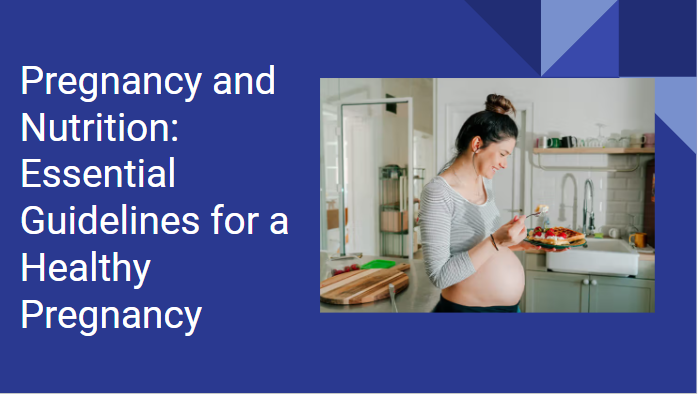Stress Management During Pregnancy: Tips for a Healthy Mind and Body
Last Updated on September 10, 2023 by Lily
Pregnancy is a time of joy and anticipation, but it can also bring about stress and anxiety. It’s essential to manage stress during pregnancy for the well-being of both the expectant mother and the developing baby. In this article, we’ll explore the importance of stress management during pregnancy and provide practical tips to promote a healthy mind and body.
1. Understanding Stress During Pregnancy
The Impact of Stress
Stress during pregnancy can affect the body and mind in various ways. It may lead to physical symptoms like headaches, muscle tension, and digestive problems. It can also contribute to emotional challenges, such as mood swings, irritability, and feelings of overwhelm.
Potential Risks to the Baby
High levels of stress during pregnancy are associated with an increased risk of preterm birth, low birth weight, and developmental issues. Managing stress is crucial to support the baby’s healthy growth and development.
2. The Importance of Self-Care
Prioritizing Self-Care
Self-care is essential during pregnancy. Taking time for yourself allows you to recharge and better cope with the demands of pregnancy. Whether it’s a warm bath, reading a book, or practicing relaxation techniques, self-care should be a regular part of your routine.
Getting Adequate Rest
Fatigue is common during pregnancy, and getting enough rest is crucial. Ensure you’re getting sufficient sleep, taking naps when needed, and creating a comfortable sleep environment.
Mindfulness and Meditation
Mindfulness and meditation techniques can help reduce stress and promote a sense of calm. Consider taking a prenatal yoga or meditation class to learn these techniques.
3. Building a Support System
Seeking Emotional Support
Share your thoughts and feelings with a trusted friend, family member, or therapist. Talking about your experiences can provide emotional relief and help you feel understood.
Joining a Prenatal Support Group
Prenatal support groups offer a safe space to connect with other expectant mothers who may be experiencing similar challenges. Sharing experiences and tips can be reassuring and comforting.
Involving Your Partner
Include your partner in the pregnancy journey by discussing your feelings and concerns openly. Their support can make a significant difference in managing stress.
4. Stress-Reduction Techniques
Breathing Exercises
Deep breathing exercises can help reduce stress and anxiety. Try techniques like diaphragmatic breathing or the 4-7-8 method to calm your nervous system.
Progressive Muscle Relaxation
Progressive muscle relaxation involves tensing and then releasing different muscle groups in the body. It can help reduce physical tension caused by stress.
Guided Imagery
Guided imagery involves focusing on positive mental images to promote relaxation. You can find audio recordings or apps that guide you through these exercises.
Journaling
Keeping a pregnancy journal allows you to express your thoughts and emotions. It can be a helpful way to process stress and gain insight into your feelings.
5. Maintaining a Healthy Lifestyle
Balanced Diet
Eating a balanced diet rich in nutrients supports both physical and emotional health. Include a variety of fruits, vegetables, lean proteins, and whole grains in your meals.
Regular Exercise
Moderate exercise can help reduce stress and improve mood. Activities like walking, swimming, and prenatal yoga can be gentle yet effective ways to stay active during pregnancy.
Adequate Hydration
Staying hydrated is essential for overall well-being. Dehydration can exacerbate stress symptoms, so be sure to drink plenty of water throughout the day.
Limiting Caffeine and Sugar
Excessive caffeine and sugar intake can contribute to feelings of anxiety and stress. Limit these substances to help manage stress levels.
6. Time Management and Organization
Creating a Pregnancy Calendar
A pregnancy calendar can help you keep track of prenatal appointments, important dates, and milestones. Having an organized schedule can reduce anxiety about forgetting important details.
Prioritizing Tasks
Identify your top priorities and tackle them first. Breaking tasks into manageable steps and setting realistic goals can reduce stress associated with feeling overwhelmed.
Learning to Say No
It’s okay to say no to additional commitments or responsibilities during pregnancy. Focus on what’s essential and be selective about taking on extra tasks.
7. Professional Help for Managing Stress
Consulting a Mental Health Professional
If you find that stress is overwhelming and affecting your daily life, consider seeking help from a mental health professional who specializes in pregnancy-related stress and anxiety.
Medication and Pregnancy
In some cases, healthcare providers may recommend medication to manage severe stress or depression during pregnancy. It’s essential to discuss potential risks and benefits with your healthcare provider.
8. Common Concerns and FAQs About Stress During Pregnancy
Can stress during pregnancy harm the baby’s brain development?
High levels of chronic stress during pregnancy may have potential effects on the developing baby’s brain. However, the extent of these effects can vary, and managing stress is essential for overall well-being.
Is it normal to feel more stressed during certain trimesters?
It’s common for stress levels to vary throughout pregnancy. Some women may experience more stress during the first trimester due to the uncertainty, while others may feel it more acutely in the third trimester due to physical discomfort and anticipation of childbirth.
Can stress cause preterm labor?
High levels of stress may be associated with an increased risk of preterm labor. However, many factors contribute to preterm birth, and it’s essential to consult with your healthcare provider for personalized guidance.
What can I do if I feel overwhelmed by stress during pregnancy?
If you feel overwhelmed by stress, reach out to your healthcare provider, a therapist, or a support group for guidance and emotional support. Managing stress is essential for your well-being and the health of your baby.
9. Conclusion: Nurturing Your Well-Being During Pregnancy
Stress is a natural part of life, but it’s essential to manage it effectively during pregnancy. By prioritizing self-care, seeking support, and practicing stress-reduction techniques, you can nurture your physical and emotional well-being and create a positive environment for your growing baby. Remember that you don’t have to face stress alone—reach out for help when needed and embrace the joy of pregnancy.
1. Is it normal to experience stress during pregnancy?
Yes, it is normal to experience stress during pregnancy. Pregnancy brings about physical, emotional, and lifestyle changes, which can naturally lead to stress and anxiety. However, it’s essential to manage stress effectively for your well-being and the health of your baby.
2. How can stress affect my baby during pregnancy?
High levels of chronic stress during pregnancy can potentially impact the baby’s development and may be associated with a higher risk of preterm birth and low birth weight. Managing stress is crucial to reduce these risks.
3. What are some signs that I may be experiencing excessive stress during pregnancy?
Signs of excessive stress during pregnancy can include persistent feelings of anxiety, irritability, changes in sleep patterns, physical symptoms like headaches or digestive problems, and an inability to relax. If you experience these symptoms, it’s important to seek support.
4. Can stress lead to pregnancy complications?
While stress alone may not directly cause pregnancy complications, it can contribute to an increased risk of certain issues, such as preterm birth or low birth weight. Stress management is vital to reduce these potential risks.
5. How can I differentiate between normal pregnancy worries and excessive stress?
Normal pregnancy worries often include concerns about the baby’s health, preparations for childbirth, and parenting. Excessive stress goes beyond these worries and can manifest as persistent anxiety, physical symptoms, and difficulty coping with daily life.
6. What can I do to reduce stress levels during pregnancy?
Reducing stress during pregnancy involves self-care, seeking support, and practicing stress-reduction techniques. These include activities like mindfulness, relaxation exercises, and seeking emotional support from friends, family, or professionals.
7. Can stress affect my baby’s long-term development?
The long-term effects of prenatal stress on a baby’s development are still being studied. However, managing stress during pregnancy is essential to provide the best possible environment for your baby’s growth and development.
8. Are there specific relaxation techniques that are safe during pregnancy?
Yes, there are various relaxation techniques that are safe during pregnancy, including deep breathing exercises, progressive muscle relaxation, guided imagery, and prenatal yoga. These techniques can help reduce stress and promote a sense of calm.
9. Can prenatal massage help with stress relief during pregnancy?
Prenatal massage can be a safe and effective way to relieve physical tension and reduce stress during pregnancy. However, it’s essential to seek out a licensed and experienced prenatal massage therapist who is familiar with the specific needs of expectant mothers.
10. When should I seek professional help for stress during pregnancy?
If you find that stress is overwhelming and significantly impacting your daily life, it’s essential to seek professional help. A therapist or mental health provider experienced in working with pregnant women can provide valuable guidance and support.
11. Can stress affect my ability to bond with my baby during pregnancy?
Excessive stress can potentially affect your emotional well-being and may make it more challenging to bond with your baby during pregnancy. However, taking steps to manage stress can help foster a positive emotional connection.
12. Are there specific foods or dietary changes that can help reduce stress during pregnancy?
Maintaining a balanced diet with a variety of nutrients is essential for overall well-being. Some foods, such as those rich in omega-3 fatty acids (like salmon), can support mood and reduce stress. However, it’s important to consult with a healthcare provider or nutritionist for dietary recommendations tailored to your needs.
13. Can stress during pregnancy lead to postpartum depression?
While stress during pregnancy is not a direct cause of postpartum depression, it may contribute to an increased risk. Managing stress and seeking support during pregnancy can be beneficial in reducing the risk of postpartum depression.
14. How can I communicate my stress to my healthcare provider effectively?
Open communication with your healthcare provider is essential. Be honest about your stress levels, share your concerns, and ask for guidance or resources. Your provider can offer recommendations or referrals to specialists if needed.
15. Are there any specific exercises or physical activities that can help with stress reduction during pregnancy?
Gentle physical activities like walking, swimming, and prenatal yoga can be effective for stress reduction during pregnancy. These activities promote relaxation, improve mood, and reduce physical tension.
16. Can stress during pregnancy affect my baby’s sleep patterns?
Excessive stress may impact your own sleep patterns, and this can indirectly affect your baby’s sleep patterns once they are born. Managing stress and prioritizing healthy sleep habits during pregnancy can contribute to better sleep for both you and your baby.
17. How can I involve my partner or spouse in stress management during pregnancy?
Involving your partner in stress management can strengthen your support system. Share your feelings and concerns with them, and explore stress-reduction techniques together, such as practicing relaxation exercises or attending prenatal classes.
18. Can stress affect my blood pressure during pregnancy?
Chronic stress can contribute to fluctuations in blood pressure, potentially leading to hypertension (high blood pressure) during pregnancy. Monitoring and managing stress can help support healthy blood pressure levels.
19. Is it safe to use relaxation apps or mindfulness apps during pregnancy?
Using relaxation apps or mindfulness apps can be safe and beneficial during pregnancy. Many apps offer guided meditation and relaxation exercises tailored to expectant mothers. Choose reputable apps with positive user reviews.
20. Can stress affect my baby’s temperament or behavior after birth?
The long-term effects of prenatal stress on a baby’s temperament and behavior are still being studied. However, reducing stress during pregnancy is important to provide a positive and nurturing environment for your baby’s development.



